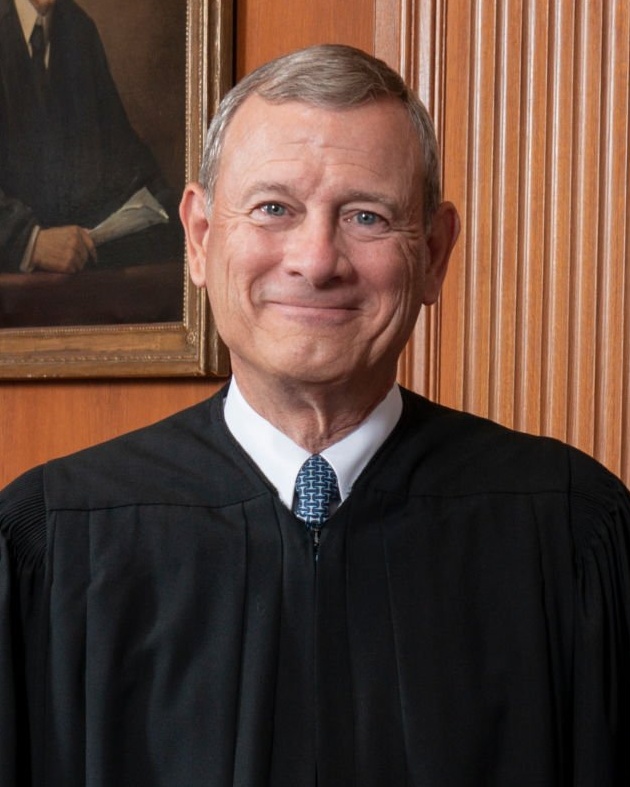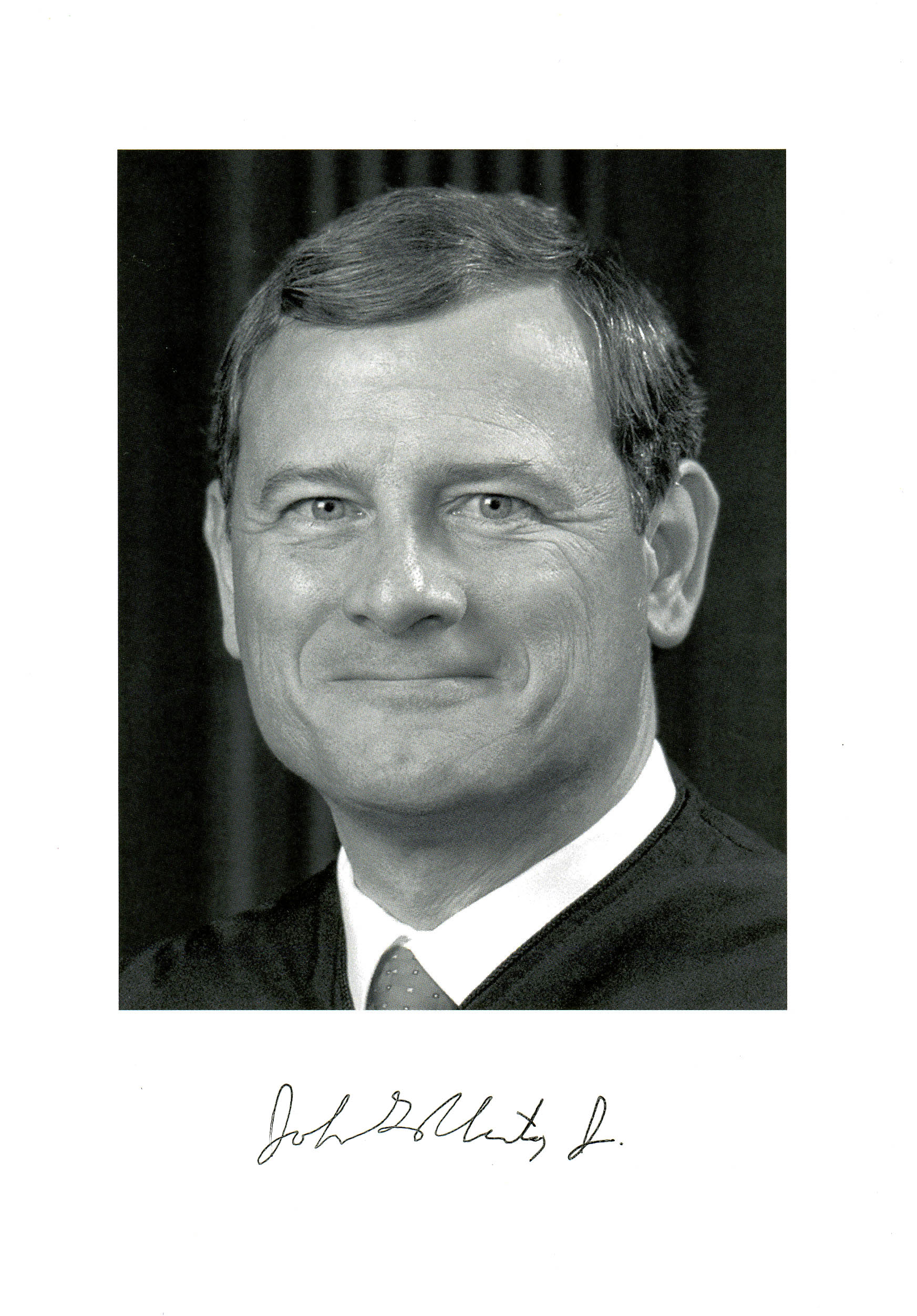John Roberts Statement: A Comprehensive Look At His Impactful Words
When John Roberts speaks, the world listens. His statements carry weight, authority, and insight that resonate deeply within legal circles and beyond. As the Chief Justice of the United States Supreme Court, his words often shape the course of justice and influence public perception. Whether it's addressing critical constitutional issues or reflecting on the role of the judiciary, John Roberts' statements are more than just opinions—they are pivotal moments in American jurisprudence.
John Roberts' journey to becoming one of the most influential figures in the legal system is nothing short of remarkable. From his early days as a law clerk to his current position as Chief Justice, his career has been marked by dedication, integrity, and an unwavering commitment to upholding the law. His statements reflect this dedication, offering clarity and guidance on complex legal matters.
Throughout his tenure, John Roberts has consistently demonstrated a knack for crafting statements that strike a balance between legal precision and accessibility. His ability to articulate complex ideas in a manner that resonates with both legal professionals and the general public has earned him widespread respect. In this article, we'll delve into some of his most notable statements, exploring their significance and impact.
Biography of John Roberts: A Man of Law and Legacy
Before diving into his statements, it's essential to understand the man behind the words. John Roberts was born on January 27, 1955, in Buffalo, New York. He grew up in Indiana, where he developed a passion for law and justice from an early age. His educational journey took him to prestigious institutions, including Harvard University, where he earned his law degree magna cum laude.
Here's a quick overview of his personal and professional life:
| Full Name | John Glover Roberts Jr. |
|---|---|
| Date of Birth | January 27, 1955 |
| Place of Birth | Buffalo, New York |
| Education | Harvard University (Law Degree) |
| Profession | Chief Justice of the United States Supreme Court |
John Roberts' career is a testament to his brilliance and dedication. From serving as a law clerk to Justice William Rehnquist to his appointment as Chief Justice in 2005, his journey has been one of continuous growth and achievement.
Key Moments in John Roberts' Career
John Roberts' career is filled with milestones that have shaped the legal landscape of the United States. Here are some of the most significant moments:
- Appointed to the Supreme Court in 2005 by President George W. Bush.
- Delivered pivotal opinions in landmark cases such as NFIB v. Sebelius and Obergefell v. Hodges.
- Championed judicial independence and the rule of law in numerous speeches and writings.
John Roberts Statement: The Art of Legal Precision
John Roberts' statements are renowned for their clarity and precision. He has a unique ability to distill complex legal concepts into digestible language, making them accessible to a wide audience. This skill is not just a matter of eloquence; it's a reflection of his deep understanding of the law and its nuances.
Understanding the Impact of His Words
When John Roberts issues a statement, it carries significant weight. His words often shape public discourse and influence legal interpretations. For instance, his opinions in cases like NFIB v. Sebelius, where he upheld the Affordable Care Act, demonstrated his commitment to upholding the Constitution while navigating political pressures.
His statements are not just about legal outcomes; they also reflect broader principles. In his dissenting opinion in Shelby County v. Holder, Roberts emphasized the importance of congressional action in addressing voting rights, showcasing his belief in the balance of powers.
John Roberts Statement: Key Themes and Variations
While John Roberts' statements vary in context and content, they often revolve around key themes. These themes include:
- The Rule of Law: Roberts consistently underscores the importance of adhering to established legal principles.
- Judicial Independence: He advocates for the judiciary's role as a neutral arbiter, free from political influence.
- Constitutional Interpretation: His statements often delve into the nuances of interpreting the Constitution in modern times.
Long-Tail Keywords in His Statements
John Roberts' statements often incorporate long-tail keywords that reflect the depth and breadth of his legal expertise. For example, phrases like "judicial restraint," "original intent," and "checks and balances" frequently appear in his opinions and speeches, highlighting his focus on core legal principles.
John Roberts Statement: A Look at His Most Notable Opinions
John Roberts' tenure as Chief Justice has been marked by several notable opinions that have shaped American law. Let's take a closer look at some of these landmark cases:
NFIB v. Sebelius: Upholding the Affordable Care Act
In 2012, John Roberts delivered a surprising opinion in NFIB v. Sebelius, upholding the individual mandate of the Affordable Care Act. His reasoning, which framed the mandate as a tax rather than a penalty, demonstrated his ability to navigate complex legal and political landscapes. This opinion highlighted his commitment to upholding the Constitution while respecting legislative intent.
Obergefell v. Hodges: Legalizing Same-Sex Marriage
John Roberts' dissenting opinion in Obergefell v. Hodges showcased his belief in the importance of democratic processes in shaping societal norms. While he recognized the significance of the decision, he argued that such fundamental changes should be made through legislative action rather than judicial fiat.
John Roberts Statement: The Role of the Judiciary in Modern Society
In an era of increasing polarization, John Roberts' statements often emphasize the judiciary's role as a neutral arbiter. He believes that judges should refrain from becoming political figures, focusing instead on applying the law impartially. This perspective is evident in his public speeches and writings, where he advocates for judicial independence and the rule of law.
Challenges Facing the Judiciary Today
The judiciary faces numerous challenges in the modern world, from political pressures to public perception. John Roberts' statements often address these challenges, offering insights into how the judiciary can maintain its integrity and effectiveness. His emphasis on transparency and accountability highlights his commitment to upholding the public's trust in the legal system.
John Roberts Statement: The Future of American Jurisprudence
As the legal landscape continues to evolve, John Roberts' statements provide valuable insights into the future of American jurisprudence. He advocates for a judiciary that remains grounded in constitutional principles while adapting to changing societal norms. His vision for the future emphasizes the importance of judicial independence, public trust, and the rule of law.
Preparing for the Challenges Ahead
The challenges facing the judiciary in the coming years are significant. From addressing emerging technologies to navigating complex social issues, John Roberts' statements offer guidance on how the legal system can remain relevant and effective. His emphasis on education, dialogue, and collaboration highlights his belief in the power of collective effort to address these challenges.
Conclusion: The Lasting Legacy of John Roberts' Statements
John Roberts' statements have left an indelible mark on American jurisprudence. His ability to articulate complex legal concepts with clarity and precision has earned him widespread respect and admiration. From his opinions in landmark cases to his public speeches, his words continue to shape the legal landscape and influence public discourse.
As we look to the future, John Roberts' legacy will undoubtedly endure. His commitment to upholding the Constitution, maintaining judicial independence, and fostering public trust serves as a guiding light for generations to come. We invite you to engage with his words, share your thoughts, and explore the rich tapestry of American law that he has helped to weave.
So, what are you waiting for? Dive deeper into the world of John Roberts' statements and discover the power of words in shaping our legal system!
Table of Contents
- Biography of John Roberts
- Key Moments in John Roberts' Career
- John Roberts Statement: The Art of Legal Precision
- Understanding the Impact of His Words
- John Roberts Statement: Key Themes and Variations
- John Roberts Statement: A Look at His Most Notable Opinions
- John Roberts Statement: The Role of the Judiciary in Modern Society
- Challenges Facing the Judiciary Today
- John Roberts Statement: The Future of American Jurisprudence
- Preparing for the Challenges Ahead
Daredevil Born Again Episodes: A Deep Dive Into Marvel's Latest Masterpiece
Who Is Adam In Daredevil Born Again? Unraveling The Mystery Behind This Enigmatic Character
Unveiling The Legacy Of St. Francis PA: A Journey Through Time And Faith

John Roberts So Help Me God! Wiki Fandom

FileJohn Roberts signature.svg Wikipedia

How John Roberts Supreme Court Is Slowly Bridging the Political Divide